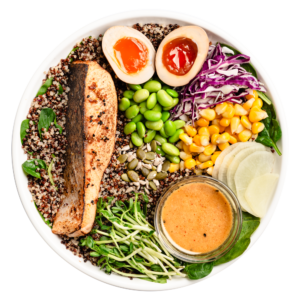Antioxidants have garnered significant attention in health and wellness circles, and for good reason. These remarkable compounds, which are found abundantly in fruits, vegetables, and other plant-based foods, play a crucial role in protecting our bodies from the damaging effects of oxidative stress. Oxidative stress arises when there is an imbalance between free radicals and antioxidants in the body, leading to potential cellular damage. By neutralizing these free radicals, antioxidants help to maintain cellular health and integrity, thereby reducing the risk of chronic diseases and contributing to overall well-being.
Understanding Oxidative Stress and Free Radicals
To appreciate the role of antioxidants in disease prevention, it’s important to understand oxidative stress and free radicals. Free radicals are reactive molecules from metabolism, pollution, UV radiation, and smoking that cause cellular damage. These unstable molecules seek to stabilize themselves by “stealing” electrons from healthy cells, leading to cellular damage.
Oxidative stress occurs when the production of free radicals exceeds the body’s natural ability to neutralize them. Prolonged oxidative stress can damage DNA, proteins, and lipids, contributing to the development of various chronic conditions such as cardiovascular disease, cancer, diabetes, and neurodegenerative disorders like Alzheimer’s disease.
How Antioxidants Work
Antioxidants serve as a defense system, neutralizing free radicals before they can damage cells. They do this by donating an electron to the free radical without becoming destabilized themselves. This action breaks the chain reaction of oxidative stress and prevents further damage to tissues and organs.
Vitamins, minerals, and enzymes each play unique roles in the body’s defense against damage. Well-known examples include:
- Vitamin C: Found in citrus, berries, and leafy greens, protects cells from oxidative damage and supports immunity.
- Vitamin E: This fat-soluble antioxidant, found in nuts, seeds, and vegetable oils, helps protect cell membranes from free radical damage.
- Beta-Carotene: Beta-carotene, found in colorful vegetables like carrots and spinach, supports eye health and immune function.
- Selenium: This mineral works alongside antioxidant enzymes and can be found in foods like Brazil nuts, fish, and grains.
- Flavonoids: Found in tea, chocolate, and various fruits, flavonoids are plant-based antioxidants known for their anti-inflammatory properties.
Antioxidants and Disease Prevention
Numerous studies have shown that a diet rich in antioxidants can help reduce the risk of several chronic diseases. Here are key areas where antioxidants significantly impact health:
1. Cardiovascular Disease
Oxidative stress drives the buildup of plaque in arteries, often linking it to cardiovascular disease. Antioxidants like vitamins C and E reduce inflammation, prevent LDL oxidation, and enhance blood vessel function. A diet rich in antioxidants from berries, greens, and whole grains is linked to reduced heart disease and stroke rates.
2. Cancer
Oxidative damage to DNA is one of the key factors in the development of cancer. By neutralizing free radicals, antioxidants can reduce the risk of mutations that may lead to cancerous growths. Diets rich in fruits and vegetables may lower the risk of lung, stomach, colon, and breast cancers.
3. Neurodegenerative Diseases
Alzheimer’s and Parkinson’s involve neuron degeneration, with oxidative stress significantly contributing to this process. Antioxidants, particularly vitamins C and E, may protect neurons from damage, slowing the progression of these diseases. Including nuts, seeds, berries, and dark greens in your diet supports brain health and reduces cognitive decline risk.
4. Diabetes
In diabetes, oxidative stress can exacerbate complications like neuropathy, kidney disease, and cardiovascular problems. Antioxidants can help by protecting cells from damage, improving insulin sensitivity, and reducing inflammation. Consuming antioxidant-rich foods like tomatoes, spinach, and oranges may assist in managing blood sugar levels and reducing the risk of diabetes-related complications.
Incorporating a variety of antioxidant-rich foods into your daily diet is an effective and natural way to reduce the risk of chronic diseases. These powerful compounds combat oxidative stress and free radical damage, protecting the body’s cells and tissues. While antioxidants are not a cure-all, a balanced diet filled with fruits, vegetables, nuts, and whole grains can help support long-term health and well-being. By embracing a diet abundant in natural antioxidants, you can take an active role in preventing disease and promoting a healthier life. To explore antioxidant ingredients and incorporate them into your meals, click here (SaladStop!’s Nutritional Calculator).




